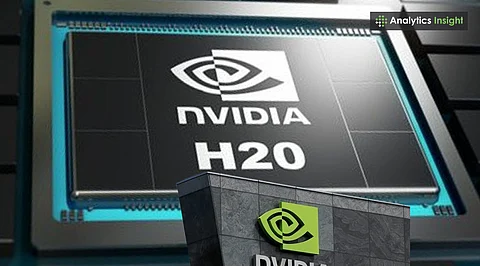The global tech landscape is once again gripped by escalating tensions as China’s Cyberspace Administration (CAC) scrutinizes Nvidia’s H20 artificial intelligence chip, raising critical security concerns and casting a long shadow over the future of US-China technology relations. This latest development underscores the deep-seated mistrust and strategic competition inherent in the burgeoning AI sector, mere weeks after a perceived breakthrough in export regulations.
At the heart of the CAC’s inquiry are suspicions regarding potential “backdoor” features embedded within the H20 chip that could compromise data integrity and user privacy. Authorities in Beijing have expressed alarm over suggestions that foreign-designed AI semiconductors might incorporate tracking or positioning functionalities, which could potentially be exploited for commercial gain or surveillance purposes when deployed overseas.
The Nvidia H20 chip itself emerged as a strategic response to stringent US export controls imposed in late 2023, specifically designed to meet Chinese market demands while adhering to existing limitations on advanced semiconductor technology. It was widely seen as a crucial workaround, enabling Nvidia to maintain its presence in a vital economic region despite geopolitical headwinds.
However, the regulatory environment continues to tighten, with American lawmakers also pushing for enhanced oversight. Senator Tom Cotton, for example, has advocated for legislation that would mandate location verification for such high-end chips, reflecting a broader governmental push in the United States to enforce stricter monitoring of exported AI technologies.
The CAC’s recent actions, while not yet accompanied by explicit punitive measures, signal profound national security apprehensions. The regulator has not detailed what specific actions it might undertake, but its engagement with Nvidia comes amidst a separate antitrust investigation in China concerning the chipmaker’s acquisition of Mellanox Technologies, adding layers to the company’s multifaceted challenges.
This evolving situation is pivotal in the ongoing US–China tech rivalry, transforming the H20 chip from a clever solution to export curbs into a flashpoint for exacerbated cybersecurity and trade frictions. Despite these regulatory hurdles, recent reports indicate robust demand for the H20 chips, with orders reportedly reaching 300,000 units just last week, highlighting the immense stakes involved for both commercial interests and national policy.
Historical precedents from Beijing offer potential insights into the trajectory of this standoff. China previously imposed a ban on Micron’s memory products in key domestic sectors and called for a comprehensive review of Intel hardware, demonstrating a willingness to leverage regulatory power in response to perceived threats or political pressures. The inspection of the H20 chip could thus serve as a stern warning or a prelude to more decisive action.
As the global AI chip race intensifies, Nvidia finds itself navigating a precarious balance of innovation, regulatory compliance, and diplomatic finesse. This narrative transcends mere technological advancements; it is fundamentally about the intricate interplay of international trust, sovereign regulation, and the strategic control of critical digital infrastructure in an increasingly interconnected yet fragmented world.






Leave a Reply